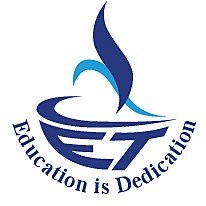Program Outcomes (PO)
| PO1 | Engineering Knowledge: Apply the knowledge of mathematics, science, engineering fundamentals, and an engineering specialization to the solution of complex engineering problems. |
| PO2 | Problem Analysis: Identify, formulate, review research literature, and analyze complex engineering problems reaching substantiated conclusions using first principles of mathematics, natural sciences, and engineering sciences. |
| PO3 | Design/ Development of Solutions: Design solutions for complex engineering problems and design system components or processes that meet the specified needs with appropriate consideration for the public health and safety, and the cultural, societal, and environmental considerations. |
| PO4 | Conduct investigations of complex problems: Use research-based knowledge and research methods including design of experiments, analysis and interpretation of data, and synthesis of the information to provide valid conclusions. |
| PO5 | Modern Tool Usage: Create, select, and apply appropriate techniques, resources, and modern engineering and IT tools including prediction and modeling to complex engineering activities with an understanding of the limitations. |
| PO6 | The Engineer and Society: Apply reasoning informed by the contextual knowledge to assess societal, health, safety, legal and cultural issues and the consequent responsibilities relevant to the professional engineering practice. |
| PO7 | Environment and Sustainability: Understand the impact of the professional engineering solutions in societal and environmental contexts, and demonstrate the knowledge of, and need for sustainable development. |
| PO8 | Ethics: Apply ethical principles and commit to professional ethics and responsibilities and norms of the engineering practice. |
| PO9 | Individual and Team Work: Function effectively as an individual, and as a member or leader in diverse teams, and in multidisciplinary settings. |
| PO10 | Communication: Communicate effectively on complex engineering activities with the engineering community and with society at large, such as, being able to comprehend and write effective reports and design documentation, make effective presentations, and give and receive clear instructions. |
| PO11 | Project Management and Finance: Demonstrate knowledge and understanding of the engineering and management principles and apply these to one’s own work, as a member and leader in a team, to manage projects and in multidisciplinary environments. |
| PO12 | Lifelong Learning: Recognize the need for, and have the preparation and ability to engage in independent and life-long learning in the broadest context of technological change. |
Program Educational Objectives
On successful completion of the Program, Our Graduates are expected to:
- To be equipped with the engineering skills and technical concepts enabling them to take up careers in Biotechnology and allied fields globally.
- To instill the passion for lifelong learning scientific discovery, allowing them to conduct research, communicate and innovate technologies keeping them motivated to take research and higher education.
- To inculcate entrepreneurial and techno management skills along with professional and ethical responsibility empowering them to be responsible and socially aware citizens.
Program Specific Outcomes
- To measure, model and manipulate properties of biological systems at the cellular and molecular level so as to produce sustainable products that address environmental and ethical standards
- To formulate and execute quantitative and design- oriented analysis of biological systems with modern tools and techniques that generate new knowledge at the interface of engineering and biology
- To transform as socially relevant biological engineers having a professional outlook that would enable them to work as a part of a team in an industrial, research or entrepreneurial set up and sustain a desire for higher learning and research.

